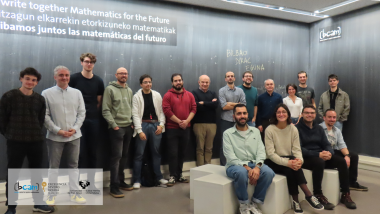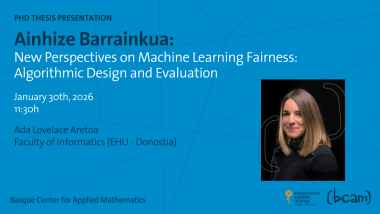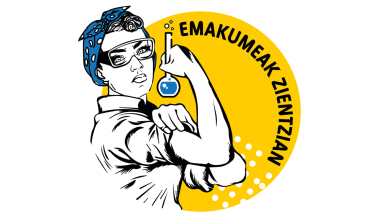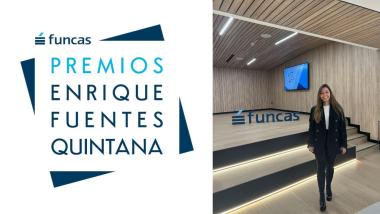The first meeting of the Leonardo Network is held in Madrid
- 200 researchers and creators, including BCAM researcher Luz Roncal, met at this event promoted by the BBVA Foundation
On November 14, the BBVA Foundation brought together 200 researchers and creators at its headquarters in Madrid to set in motion the Leonardo Network, a community formed by the awardees of the five calls of this program.
The event began with a speech by the president of the foundation, Francisco Gonzalez, who stated that "expanding and innovating in science and culture is the most powerful tool for tackling the great individual and collective challenges of our time". His speech was followed by several members of the Evaluation Commissions and some time for questions, in which the grant holders spoke about their personal experiences and made suggestions for improvement. Finally, diplomas were handed out to all the winners and a lunch was held so that the awardees could get to know each other.
Among the attendees was Luz Roncal, researcher of BCAM’s Harmonic Analysis group, who achieved a Leonardo scholarship in the 2017 call with a project on the study of inequalities involving equations and fractional operators in the Heisenberg group. In her opinion, events such as this one add value to the awards and help to "give prestige and visibility to the recipients of the scholarships", in addition to giving them the opportunity to get in touch with the heads of the foundation who "want to listen to the researchers in order to be able to attend to their demands or suggestions which they may not perceive from their position as non-researchers". Although he could not attend the event because he was visiting MIT, BCAM-Ikerbasque researcher Santiago Mazuelas also belongs to the Leonardo network thanks to the grant he got in the last call for a project on data processing for decision making and open machine learning.
The Leonardo program: 5 calls, more than 9,000 applications and 308 grants awarded
The Leonardo grants are designed to make personal projects that tackle in an innovative way the challenges of research and cultural creation come true, in eleven areas of knowledge that range from Basic Sciences, Information and Communication Technologies or Engineering to Literary Creation and Theatre. Their purpose is to contribute to the generation of knowledge in its broadest sense, from basic research and the development of technological applications, to philosophical speculation and artistic reflection. In the first five calls (2014-2018) they received more than 9,000 applications, with 308 grants awarded, worth a total of 10.5 million euros.
Related news




